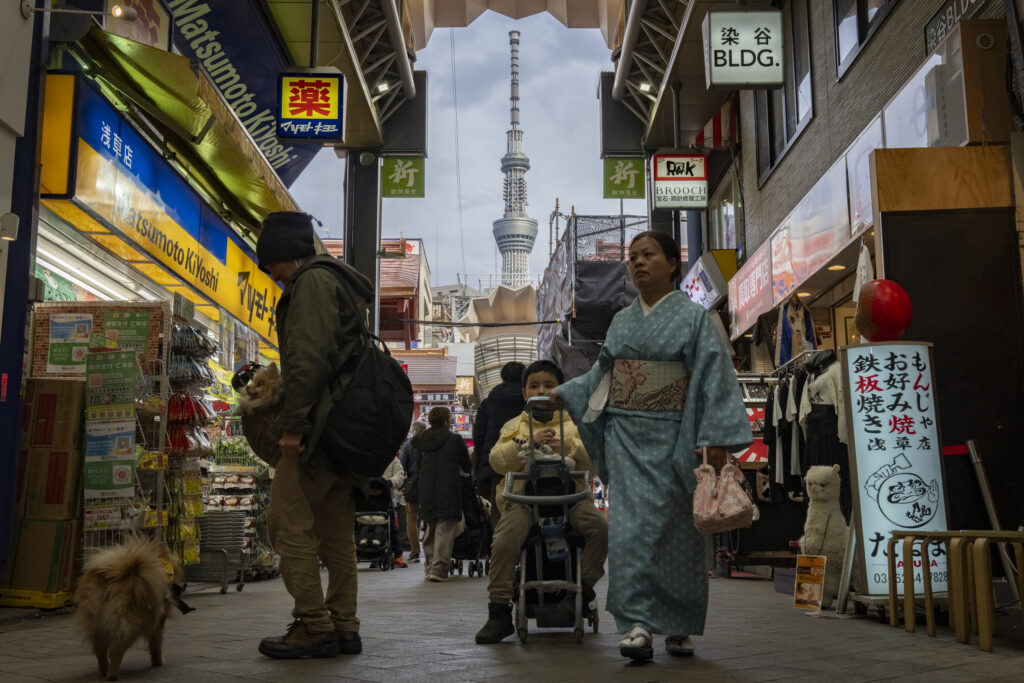AFP Asia Business
‘Unscientific’ Japan megaquake rumours spook Hong Kong tourists
Unfounded online rumours warning that a huge earthquake will soon strike Japan are taking a toll on travel firms and airlines who report less demand from worried Hong Kongers.People from Hong Kong made nearly 2.7 million trips to Japan in 2024.Although it is impossible to know exactly when earthquakes will hit, fear-inducing predictions have spread …
‘Unscientific’ Japan megaquake rumours spook Hong Kong tourists Read More »
End of nuclear in Taiwan fans energy security fears
Taiwan will turn off its last nuclear reactor on Saturday, fuelling concerns over the self-ruled island’s reliance on imported energy and vulnerability to a Chinese blockade.The island, which targets net-zero emissions by 2050, depends almost entirely on imported fossil fuel to power its homes, factories and critical semiconductor chip industry.President Lai Ching-te’s Democratic Progressive Party …
End of nuclear in Taiwan fans energy security fears Read More »
Trump to close deal-making Gulf tour in UAE
US President Donald Trump on Thursday closes a Middle East tour in the United Arab Emirates as he focuses squarely on seeking deals after billions of dollars of pledges from Saudi Arabia and Qatar.The first major trip of his second term had been scheduled to end Thursday but Trump, always ready with surprises, did not rule out continuing on to Turkey if Russian President Vladimir Putin shows up for talks with Ukraine.Trump will fly to the Emirati capital Abu Dhabi after a stop in Qatar, where the president hailed what he said was a record $200 billion deal for Boeing aircraft.He started the trip in Saudi Arabia which promised its own $600 billion in investment, including one of the largest-ever purchases of US weapons.The Gulf leaders’ largesse has also stirred controversy, with Qatar offering Trump a luxury aeroplane ahead of his visit for presidential and then personal use, in what Trump’s Democratic rivals charged was blatant corruption.Trump, who also chose Saudi Arabia for the opening visit of his first term, has been unabashed about seeking Gulf money and hailed the effect on creating jobs at home.In a speech in Riyadh, Trump attacked not only Democrats but also the traditional wing of his own Republican Party, which had championed US military intervention in Afghanistan and Iraq.Complimenting the skyline of the Saudi desert capital, Trump said: “The gleaming marvels of Riyadh and Abu Dhabi were not created by the so-called ‘nation-builders’, ‘neocons’ or ‘liberal non-profits’, like those who spent trillions failing to develop Kabul and Baghdad.””Instead, the birth of a modern Middle East has been brought about by the people of the region themselves,” he said.”In the end, the so-called ‘nation-builders’ wrecked far more nations than they built.”- Silent on rights -Trump steered clear of any hint of criticism of the Gulf monarchies on human rights.Trump’s predecessor Joe Biden had initially vowed to shun Saudi Arabia’s Crown Prince Mohammed bin Salman over US intelligence findings that he ordered the gruesome murder in 2018 of Jamal Khashoggi — a Saudi dissident writer who lived in the United States.Trump instead hailed the crown prince, who is Saudi Arabia’s de facto ruler, as a visionary due to the kingdom’s rapid economic investments.Trump also acceded to a key request by the crown prince in announcing a lifting of sanctions on Syria following the toppling of Bashar al-Assad in December.He met in Riyadh with Ahmed al-Sharaa, a former Islamist guerrilla once on the US wanted list who dressed in a suit and was complimented by Trump as a “young, attractive guy”.Trump was joined in the meeting by Prince Mohammed and, virtually, by Turkish President Recep Tayyip Erdogan, the key supporter of the former Syrian rebels.Trump said Wednesday he was willing to travel to Turkey if Putin accepts an offer by Ukrainian President Volodymyr Zelensky to meet on ending the war.Russia has given no indication that Putin will attend. Trump said that Secretary of State Marco Rubio would travel nonetheless to Istanbul for the potential talks.
Ben & Jerry’s cofounder removed from Senate in Gaza protest
Ben Cohen, co‑founder of Ben & Jerry’s ice cream and a longtime progressive activist, told AFP he was speaking for millions of Americans outraged by the “slaughter” in Gaza after his removal from a US Senate hearing on Wednesday.Cohen, 74, was among a group of protesters who startled Health Secretary Robert F Kennedy Jr. by interrupting his testimony about his department’s budget proposal.Shouting that “Congress pays for bombs to kill children in Gaza” while lawmakers move to slash Medicaid — the health insurance program for low‑income families — the businessman and philanthropist was placed in handcuffs by Capitol Police.He urged senators to press Israel to let food reach “starving kids” as he was led away.”It got to a point where we had to do something,” Cohen said in an interview after his release, calling it “scandalizing” that the US approved “$20 billion worth of bombs” for Israel even as social programs are squeezed back home.”The majority of Americans hate what’s going on, what our country is doing with our money and in our name,” he said.US public opinion toward Israel has become increasingly unfavorable, especially among Democrats, according to a Pew Research Center Poll last month.Beyond the spending, Cohen framed the issue as a moral and “spiritual” breach.”Condoning and being complicit in the slaughter of tens of thousands of people strikes at the core of us as far as human beings and what our country stands for,” he said, pointing to the fact that the United States pours roughly half its discretionary budget into war‑related spending.”If you spent half of that money making lives better around the world, I think there’d be a whole lot less friction.”Invoking a parenting analogy, he added: “You go to a three-year-old who goes around hitting people and you say ‘Use your words.’ There’s issues between countries but you can work them out without killing.”A longtime critic of Israeli policy, Cohen last year joined prominent Jewish figures in an open letter opposing the pro‑Israel lobby AIPAC. “I understand that I have a higher profile than most people and so I raise my voice, it gets heard. But I need you and others to understand that I speak for millions of people who feel the same way.”Israel’s war in Gaza began after the October 7, 2023 attack by Hamas, which resulted in the deaths of 1,218 people on the Israeli side, mostly civilians, according to an AFP tally based on official figures.Israel’s retaliatory offensive has killed at least 52,928 people in Gaza, mostly civilians, according to figures from the territory’s Hamas-run health ministry, which the United Nations considers reliable.Gaza is at “critical risk of famine,” with the entire population facing a food crisis after more than two months of an Israeli aid blockade, and 22 percent facing a humanitarian “catastrophe,” a UN-backed food security monitor warned this week.




